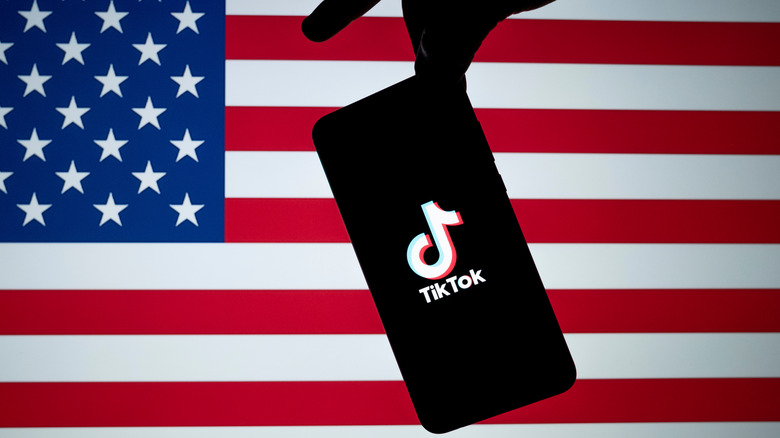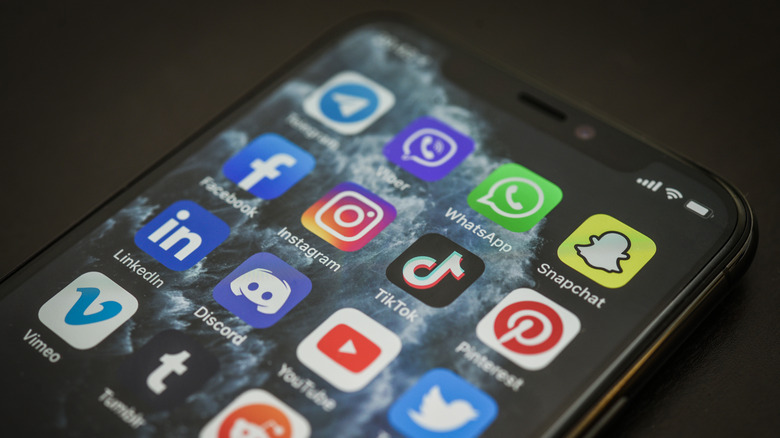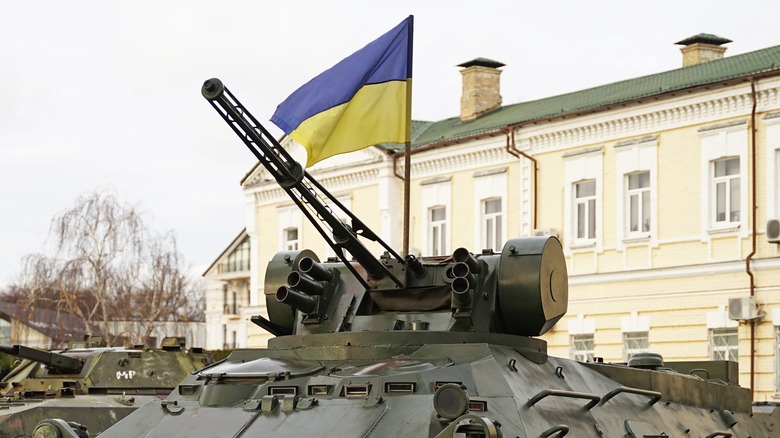Why The White House Just Debriefed TikTokers On Misinformation
The Biden administration recently held a virtual briefing with 30 influential TikTok users, it has been revealed, with the goal of curbing misinformation about the war in Ukraine. The meeting acknowledged the increasingly blurred line between traditional news media and the ways young adults are consuming news, though some of the influencers who participated in the event felt they weren't taken as seriously as journalists.
The meeting itself was private, but many of the influencers went on to provide some details about the matter in the following days. The move comes amid continued concerns about the use of social media platforms as types of virtual battlegrounds, ones where misinformation and disinformation can be disseminated and spread quickly in hopes of confusing or misleading the public about major events. Amid the briefing and these wider events, TikTok announced that it will finally start labeling state media shared on its platform.
Social media as a news source
Social media has moved far beyond its initial days as an online novelty, instead functioning as a way for people around the world to provide information with a global audience. That far-reaching scope has made the same platforms ripe for abuse, with everyone from simple trolls to state-sponsored actors potentially using their followers to drum up controversy, destabilize societies, manipulate voting populations, and more.
TikTok has proven particularly popular with Gen Z, leading to the rise of many influencers who boast hundreds of thousands or millions of followers. Seemingly out of concerns that these accounts could be used to spread misinformation about Russia's invasion of Ukraine, the White House arranged a Zoom-based virtual briefing with 30 influencers in collaboration with the nonprofit Gen Z for Change.
The Washington Post reported on March 4, 2022, that the Biden administration has been "closely watching" TikTok, namely with a focus on its potential as a major news source for millions of people. White House press secretary Jen Psaki and staffers from the National Security Council participated in the call with TikTok influencers, offering them "the latest information [on the war in Ukraine] from an authoritative source."
Getting ahead of misinformation
Rather than risking the spread of misinformation about the conflict in Ukraine, the White House's goal was to provide direct information to these influencers in hopes of getting them to share the same details with their audiences — or, at minimum, to avoid sharing news that directly contradicts the official data. The participants were given the opportunity to ask questions about the war, as well, according to details provided by PR News.
Though influencers, as the term suggests, wield substantial influence over large numbers of people, they aren't necessarily equipped to understand the complexities involved with a situation like this nor will they be able to sort through all of the varied information on their own. Some of the influencers who participated reported feeling more informed about the topic following the briefing, though others complained that they felt they weren't taken as seriously as journalists, with one participant describing it as a "press briefing for kindergartners."
Beyond that, PR News notes, some of the influencers seemed bothered by the suggestion they use their platforms to educate others about the conflict. One participant, 21-year-old Kahlil Greene, wanted to know why his followers should offer "strong support" for the US government and its "direct aid against the Russian invasion" when they may not believe there's enough attention given to other issues, including occupations and invasions, elsewhere in the world.
In response, Greene was allegedly told the Biden administration is particularly concerned about the size of the war, among other things, as it represents the biggest threat since World War 2.


